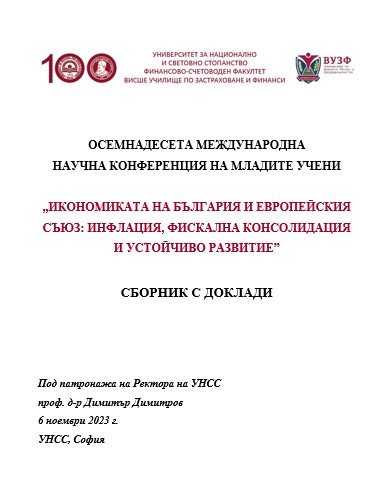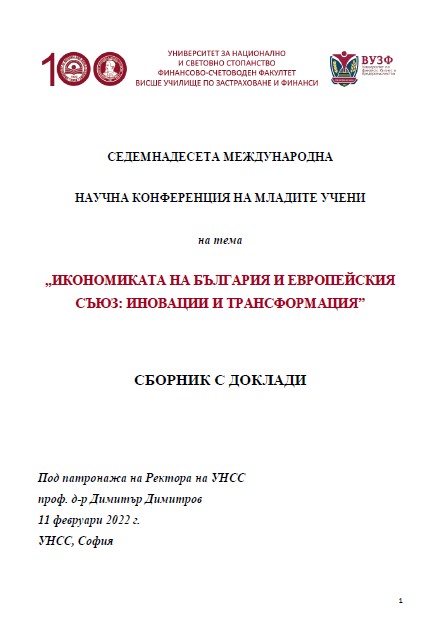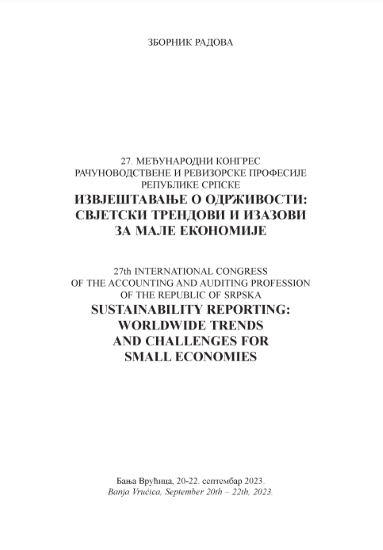Author(s): Dragan Đuričin / Language(s): Serbian
Publication Year: 0
In the last stage of human development known as Anthropocene, global 'warming and climate change, along iwith related imbalances in physical and biological subsystems, are evident to all, as well as their negative impact on socio-economic subsystem of the planet as “system dynamics” in terms of J. Forrester. After almost two centuries of industrialization, market economy and political democracy as the main drivers of socio-economic prosperity have been transformed into frictions, bringing socio-economic system in persistent and deep regression. The impact of greenhouse gas emissions, due to uncontrolled industrialization, urbanization and massive transport, on global 'warming and climate change are scientifically verified facts. As for the socio-economic system, no doubt that the current crisis is a consequence of structural imbalances entrenched in economic neoliberalism, along with imbalances due to misconceptions in providing reactive economic policies to address inbuilt imbalances. In the meantime, new disrupters emerged as a result of the impact of external asymmetric shocks. They have even further cemented the existing deep structural imbalances and developed new ones. Major external asymmetric shocks such as the climate emergency, the biotic risk implosion, and an overwhelming impact of (geo)politics on the economy and society have been unleashed. Finding a systemic solution to rising mega disbalances in all economies, developed and developing, small and big, is an imperative of our time. Confronting reality with theoretical assumptions in ever changing environment is the first lesson calling for a radical change or a paradigm change in economics, both macro and micro. The planet, which is today at least 1.1 degrees Celsius warmer than it was in the late 1800s when the market economy had started leveraging effects of industrialization, is already facing the climate emergency. Climate scientists worry that before 2050 average temperature might surpass 1.5 degrees Celsius above pre-industrial levels. Things have gone from bad to worse with the recent intensifications of geopolitical disputes. A cumulative impact of serial wars, the world war maybe, could contribute to an increase of3 degrees Celsius even before 2050. Uncontrolled global warming is increasing the probability of the most apocalyptic consequences, including the risk of more frequent biotic feedback loops and rapid extinction of people and other living organisms. The extinction rate of living organisms in the Anthropocene age is significantly higher than in any previous period of geological history of the planet. Among scientists, including economics scholars, in discussions about crisis mitigation, the climate emergency issue dominates. There is no overnight solution to this issue, but to gradually build up a new economy. One thing is certain. Relying on neoliberal rules is not feasible. Also, building a new system is a long joumey. Even if we implement quite diverse and more complex platform, we should be aware that it is not going to be easy to turn the ongoing trends because the climate emergency is a multidimensional problem. It penetrates many other issues. Consequently, in search of solutions, we cannot work without a framework. For such mega messes in a multi-crisis (economic, financial, climate, biotic, geopolitical, etc.), non-systemic, partial, and erratic responses are not possible. First and foremost, the purpose of the economy must be changed. The impact of well-being should overcome egoism. Simultaneously, humanity 'would find a sustainable way for economic development and lifestyle in line with the limits of nature. The so-called “green transition” is a new economy (and society) gateway. 'This-is a'multi-transition (geopolitical, biotic, climate, economic and financial) from old to new system dynamics. The results of this journey toward a sustainable economy, society and the planet should also be sustainable. Following this path, before 2050 the economy could reach a climate-neutral inflection point (“net-zero ”) as a prerequisite for its long-term sustainability as well as the sustainability of society and the planet. As for economic transition, solutions would primarily require the shift from linear to circular model of growth and from the orthodox neoliberal policy platform loosed on market fundamentalism to the heterodox economic policy platform 'with a better balance between core economic policies and structural (or industrial) policies, and a greater role of macroeconomic automatic stabilizers. Last but not least, the green transition has the potential to fuel new industrialization and output gap annulment. The intention in this paper is not only to voice our concern over the ongoing multi-crisis and related mega messes, but also to raise awareness of the importance of a more adequate approach in search of solutions. Among dozens of complex and interrelated questions, in this paper we attempt to focus on those answers pertaining to the performance measurement system and disclosure contributing to sustainable development. Sustainable development is an essential element of long termism supported by the United Nations ’Sustainable Development Goals (SDGs) defined in the Paris Agreement. To deliver the sustainable development goals (SDGs), an economy has to be evolving, climate-neutral and transformative. A sustainable economy requires impact investment in infrastructure (both physical and digital), vertical industrial policies in science, education, health care and culture, and horizontal industrial policies in tradable sectors. Also, it needs a new measurement system which, besides standard financial metrics, includes metrics related to environment, society and governance (ESG). In an emerging context, the materiality concept, as a fundamental accounting concept, is changing toward “dynamic materiality”. Additionally, we see changes in all components of accounting. For instance, the introduction of IFRS sustainability standards S1/S2 directly impacts financial accounting and audit, and indirectly advisory audit and management accounting. Following the previous logic of reasoning, the material is organized in five parts, except Introduction and Conclusion. The first part is dedicated to the multi-crisis as a context requiring a radical change. The following two parts are trying to draw a distinction between a conventional way of crisis mitigation and the new one based on a multi-transition approach. The fourth part, and most important one, is focused on sustainability reporting ’based on IFRS standards S1/S2. The fifth part provides an illustrative example of big data management based on sustainability disclosure in the banking industry.
More...





